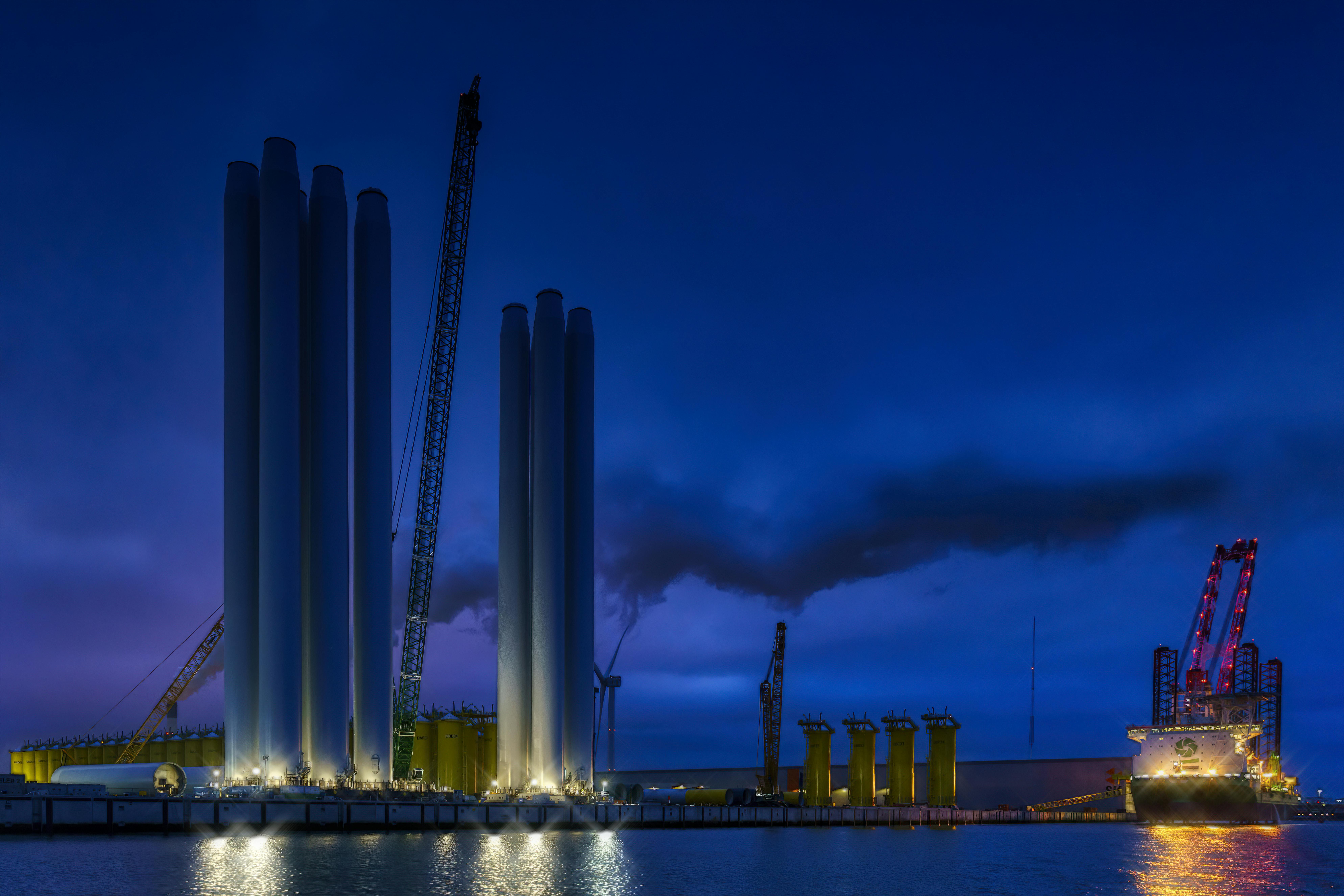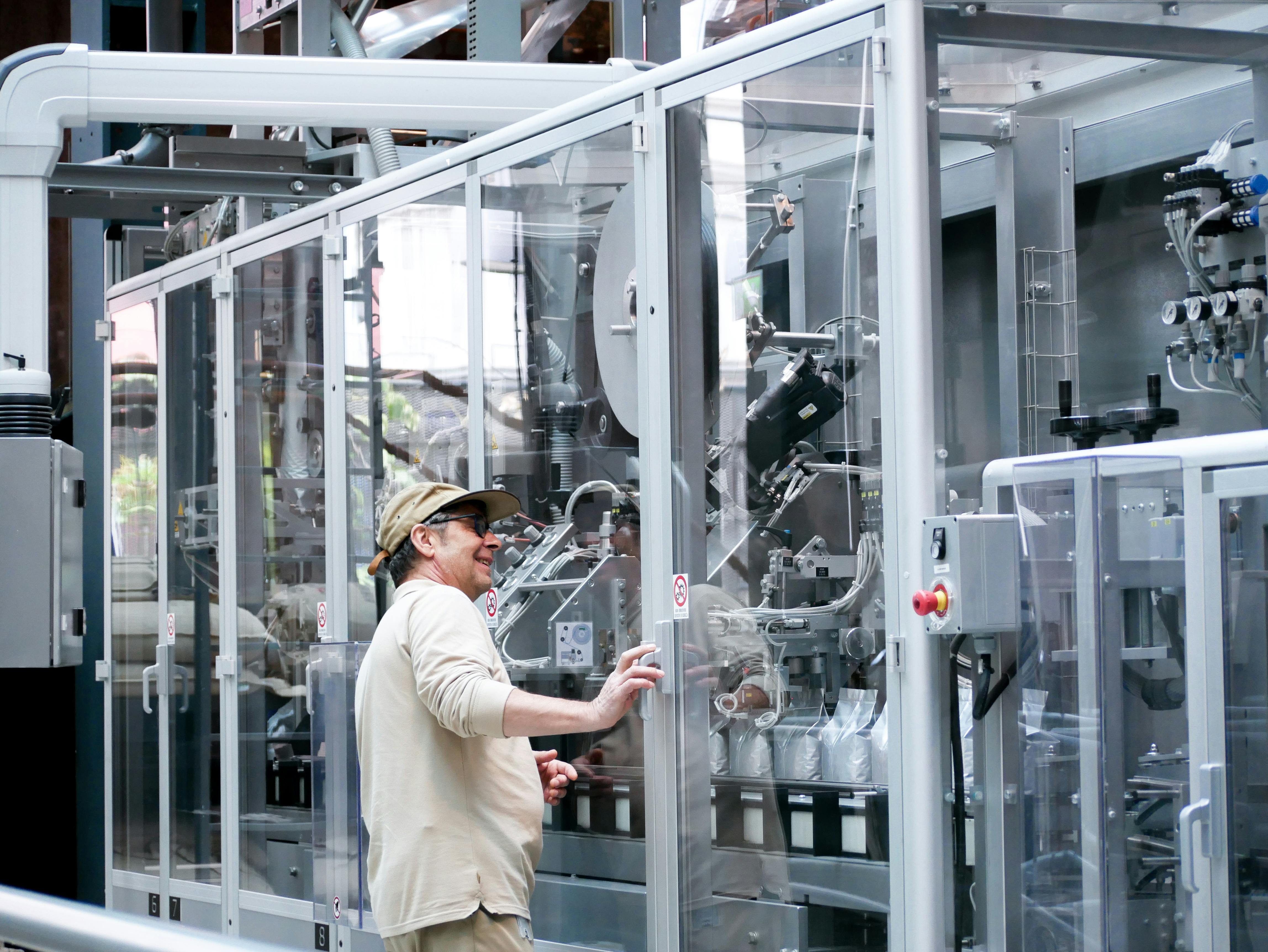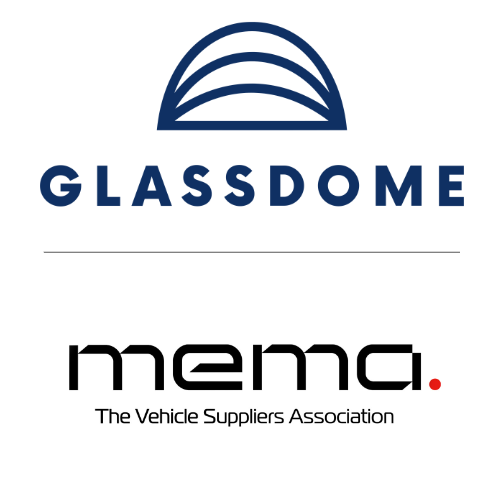By Park Se-Jin

This article was originally published in The Economist Korea.
Written by Park Se-jin
There is no time. Major countries around the world are moving beyond basic carbon regulation, while domestic companies [in Korea] are just taking their first steps. According to the Survey on the Status of ESG Regulation Response and Policy Tasks of Domestic Export Companies announced by the Korea Chamber of Commerce and Industry (KCCI) in March, 53% of Korean companies found it difficult to even measure how much carbon they emit. This has led to the self-deprecating term 'carbon illiteracy'.
The Carbon Border Adjustment Mechanism (CBAM) is one example of an ESG export regulation that is a burden to companies. CBAM imposes and collects a carbon price equivalent to the EU Emissions Trading System (EU-ETS) on products imported from outside the European Union (EU). The system is currently being piloted for six items (cement, steel, aluminum, fertilizer, electricity, and hydrogen) starting in October 2023, and will be fully implemented starting in January 2026.
CBAM not only has a direct impact on the prices of these products, but analysts also predict that petroleum, chemicals, and plastics will be added in the future. This will present a major administrative and reporting burden for companies. But many domestic companies haven't responded yet. The KCCI survey found that domestic companies' awareness and response level to ESG export regulations are low.
Survey results showed the “ESG export regulation awareness level” was 55 points for large companies, 42 points for medium-sized companies, and 40 points for small and medium-sized companies. The “response level” was 43 points for large companies, 36 points for medium-sized companies, and 31 points for small and medium-sized companies. Compared to large companies, small and medium-sized companies have a lower understanding of ESG export regulations and are also lagging in response efforts.
Global carbon regulations are continuously strengthening. However, medium-sized and small companies in the product supply chain, as well as domestic large corporations, are having difficulty obtaining accurate product carbon footprints (PCFs) - the total amount of carbon dioxide generated in the process of producing and consuming a product. In response, Glassdome Chief Business Officer Jinki Ham is becoming known as Korea's “carbon footprint hero.”
The world's first LRQA ISO 14067 certification
Glassdome began as a specialist in digital transformation of manufacturing companies. Spotting a growing need, it developed a product carbon footprint solution to respond to global environmental regulations. Glassdome's technological prowess is remarkable. Glassdome received ISO 14067 verification for product carbon footprint assessment from Lloyd's Register Quality Assurance (LRQA), an internationally accredited certification body. This is the first in the world.
LRQA is an internationally accredited certification organization and an EU-recognized ETS verification body. LRQA verifies the PCF report that companies exporting to the EU must submit. In addition, a verification report is issued to determine whether international standards are being followed.
ISO 14067 verification evaluates companies based on the PCF calculation method and reporting method defined based on ISO 14040 and ISO 14044, international standards for LCA (Life Cycle Assessment). It is given only when rigorous requirements are met.
According to Korean industry leaders, the cost of global carbon footprint certification is around tens of millions of won (tens of thousands of dollars) in time and money. In addition, in the certification process, detailed evaluations need to be conducted into whether the calculations were made according to ISO standards and how the data was derived. That adds another hefty cost.
Ham explained, "Carbon footprint-related figures must ultimately be verified by a third party. Third-party verification is mainly performed by global certification agencies, and only when there is a certification report guaranteed by the agencies can they be evaluated as reliable figures."
"Without certification from a global certification agency for carbon footprints, they are ultimately useless. Because Glassdome has been certified by LRQA as a Product Carbon Footprint Solution, auditors can access 60-70% of the data of Glassdome customers online. The certification process can be completed by checking only the remaining 30-40%, saving both time and money.”
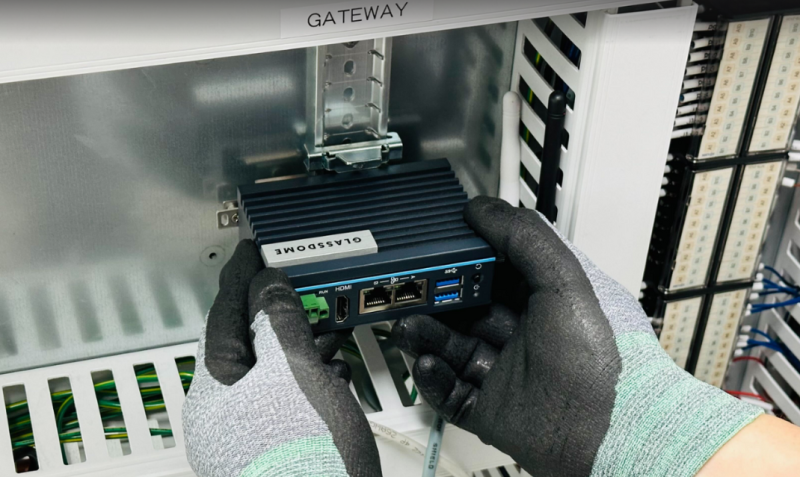
Glassdome is plug and play
The most exciting feature of Glassdome's product carbon footprint solution is its plug-and-play functionality. Most carbon footprint data collection solutions have to link machines and measuring devices with wires across the facility in order to collect data.
In contrast, Glassdome does not require installation of wires and servers to deploy - the gateways are wireless. Its cloud-based SaaS solution provides one-stop support for carbon emission data collection, monitoring, and reporting during the manufacturing process in accordance with ISO standards.
Ham explained, "Reducing costs in measuring carbon footprint is important not only for corporations, but also for small and medium companies. Installing multiple measuring devices for carbon measurement is expensive. Glassdome's carbon footprint measuring device transmits data wirelessly, so carbon emission data can be collected quickly and at low cost."
He added, “Once a measuring instrument is installed on a product’s production line, it is economical because there are no additional costs other than software updates, except in special cases where the line is changed or more raw materials are used.”
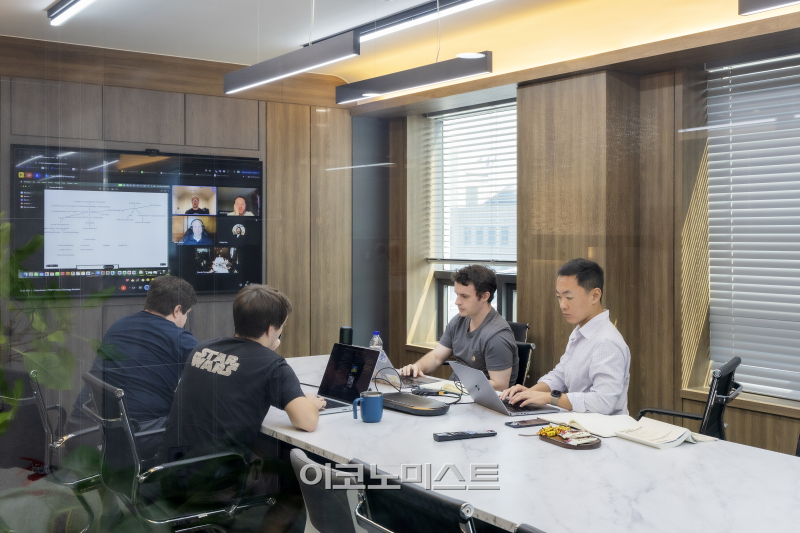
Carbon footprint is corporate competitiveness
Responding to carbon regulation is difficult even for corporations, as they must deal with the response capacity of smaller suppliers. Large companies push carbon emission management down to their first-tier suppliers. However, as demands for information cascade down to “nth-tier” suppliers, it gets more and more difficult to secure and manage data. Without specialist carbon management personnel or systems or the funds to hire them, they can’t fulfill the final manufacturer’s demands.
Ham noted, "Major global companies give instructions related to carbon emission management to their global supply chain partners, and if the partners do not have a compliant implementation strategy, they are not included in future plans."
He continued, "Large domestic manufacturers [in Korea] need to accurately receive not only carbon footprint data but also data from their partners. But most current data calculations from partners are done according to the proprietary calculation formats of these large companies."
He explained that if carbon footprints are calculated in a way that suits the convenience of large companies rather than according to the standards of global official certification agencies, no one can guarantee the accuracy of the data, imperiling their relationships with international corporations. He went on to emphasize that the key to useful carbon footprints is data accuracy.
“In the near future, the ability to manage carbon footprints will be a factor in a company’s competitiveness. Not only the cost and quality of products, but also the accuracy of carbon footprint data, will become key partner-selection criteria for corporations.”
The final destination of decarbonization is DPP
Ham views the Digital Product Passport (DPP) as the end result of the global decarbonization movement. DPP is a system that tracks the origin and carbon emissions of products. The EU plans to introduce DPP for EV batteries starting in 2026 and expand it to all large batteries by 2030. He explained that Korea needs to be thoroughly prepared to respond to this.
“The passport must include figures on how much carbon was emitted from the raw materials to the final assembly stage when producing a single product. It also provides recycling rate and origin history information. It starts with the EU Battery Act , which will be implemented in the second half of next year. “The direction of the remaining regulations will be determined by its success.”
He continued, “In order to keep up with rapidly changing global decarbonization regulations, many related support projects should be launched,” and emphasized, “There needs to be government-level action so that domestic SMEs can quickly receive information like cost impacts related to decarbonization regulations.”
He added, “One avenue is to consistently distribute seminars and promotional materials so that our SMEs are not surprised to be forced out of the export market due to decarbonization regulations.” He continued, expressing concern that “Currently, in Korea, the majority of SMEs are unaware of information related to decarbonization regulations.”
ⓒThe Economist ( https://economist.co.kr )
For more information about how Glassdome can help your company on its sustainability and compliance journey, get in touch .
More Articles





